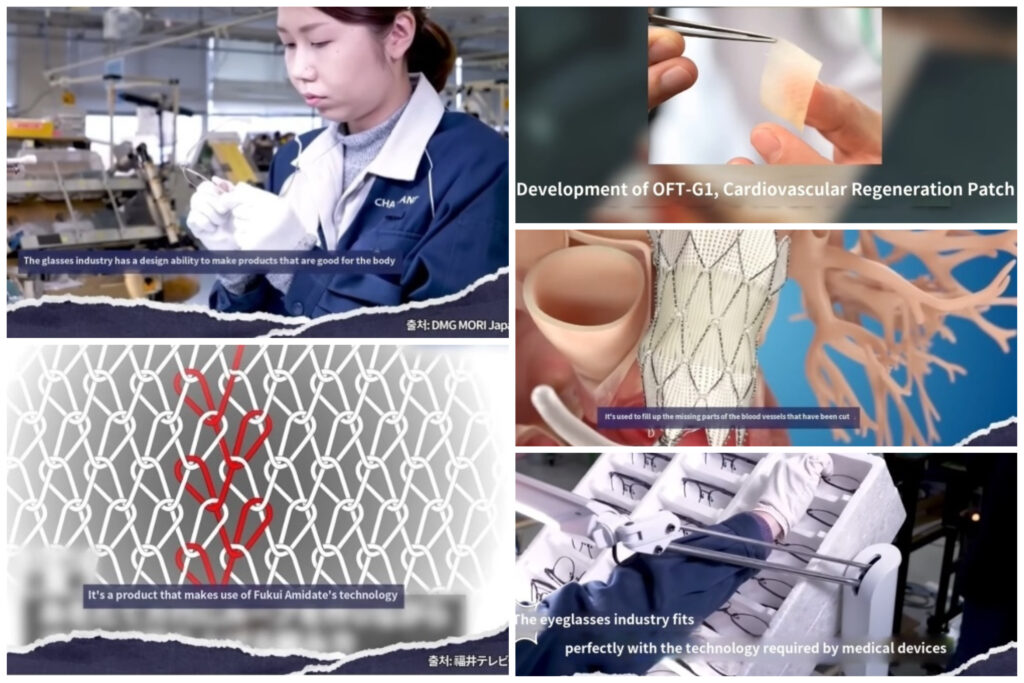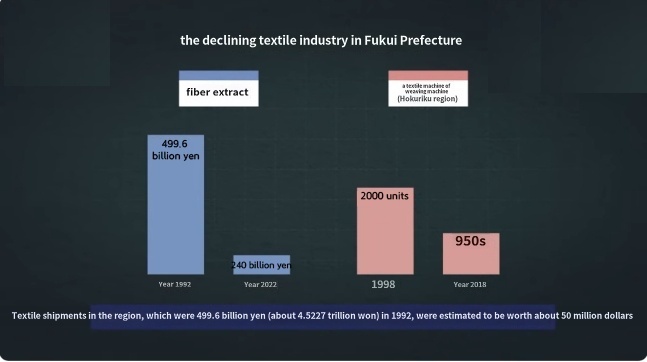
Companies in Fukui Prefecture, one of Japan’s weakest regions, have grown into a “success model for Japanese small and medium-sized enterprises.”
However, since the collapse of the bubble economy in 1990, companies in the Fukui region have come to realize that their survival is uncertain if they are complacent with small and medium-sized enterprises. This is because it is too difficult to catch up with products from China and Southeast Asian countries only with technology that draws price competitiveness as a weapon. With the emergence of existing technologies such as the Internet, artificial intelligence (AI), and electric vehicles, the rate of change in the industrial structure also exceeded expectations. Fukui Prefecture was once a region where small and medium-sized enterprises flourished enough to be called “the prefecture with the most presidents in Japan,” but the confusion of small and medium-sized enterprises has become rather a weakness in an era of fierce global competition.

Textile shipments in the region, which stood at 499.6 billion yen (about $4.4 trillion) in 1992, have now fallen by less than half. The number of textile machinery, which had a total of 2,000 female colleges in three prefectures in the Hokuriku region in 1998, is below 1,000 in 2018. According to Sabae City, sales of the eyeglasses-related manufacturing industry also halved from 114.4 billion yen in 1992 to 53.9 billion yen in 2011, and the number of related companies also decreased from 900 to 500. This is the background of sharing the sense of crisis that small and medium-sized enterprises in Fukui will collapse if they fail to become “high-tech small and medium-sized enterprises” with global competitiveness in next-generation industries beyond small and medium-sized enterprises that protect “number one” in their parent projects. Small and medium-sized enterprises in the Fukui region were confident in their technology, as in the case of the Tsukuda Production Center outside. No matter how quickly the industrial structure changes, the skills honed will not disappear. The glasses industry is an industry that combines the ability to design products that can be worn on the body and the technology to process light yet strong titanium. It fits perfectly with the technology that medical devices need. This is why glasses companies in Fukui Prefecture have found a way to live in the medical, healthcare, space, and aviation industries. The process of the textile industry pulling out yarn, weaving, heating, and coloring it is called a department store of manufacturing technology. This is why it was able to transform into a medical or aerospace industry that seemed completely unrelated on the surface. Fukuda is a model of the Tsukuda Manufacturing Company. Last year, Tim Yixing developed cardiovascular registration
JULIE KIM
US ASIA JOURNAL



